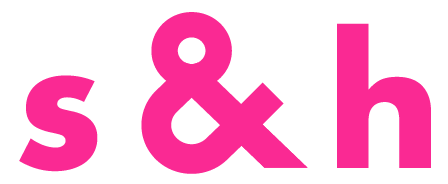Part 2: The Powerful Future of Democratized Healthcare
The internet is driving the democratization of health care — and empowering consumers. “For seven billion people globally, the democratization of healthcare is within reach when internet connectivity everywhere is solved,” said Robin Farmanfarmaian, co-author of How AI Can Democratize Healthcare and sparks & honey Advisory Board member.
“This is a really big deal. Companies like SpaceX, Meta and Google are all working to democratize connectivity right now, from drones to high altitude air balloons to satellites, like the SpaceX Starlink satellite solution currently providing Ukrainian forces with internet connectivity,” Robin added.
Healthcare access via a smartphone
These advances by tech companies are connecting the places where billions of people live glovally.
“Once you have connectivity, suddenly, with something as simple as a single smartphone, people have access to education, jobs and the most sophisticated innovations in healthcare that would otherwise have taken centuries of infrastructure development to gain,” said Robin.
We also have the pandemic to thank for many advancements in digital healthcare.
“The adoption of telemedicine via video, audio, text and apps was rapid even among non-digital native cohorts. Consumer preferences and expectations quickly shifted permanently as they experienced the convenience and money-saving costs of remote health care options,” Robin said. These include remote solutions such as urgent-care, hospital-at-home, and even virtually-monitored diagnostics via HIPAA compliant remote point-of-care diagnostic services offered by companies like TytoCare and eMed.
eMed’s platform of live, virtual certified proctors-on-demand is breaking social, physical and economic barriers to accurate diagnostics through affordability and scalability, and bringing equitable access to testing, clinical evaluation and treatment to the person in need’s home.
A future of ambient intelligence care
I asked Robin how she expects the next 15 years to evolve, given the remote care advancements we’re seeing today.
“Sensors would disappear and they would just work quietly in the background, as ambient intelligence, without us being conscious of them, or they may go inside,” said Robin.
“You may opt for implantable sensors continuously monitoring your blood profile, your insulin or cortisol levels – only alerting you when something is irregular and needs either a behavior modification (not so many donuts!), or a medical intervention,” she added.
The future involves nano-robots within close proximity, too. “Your physician may decide it’s time for ingestible nano-robots that can perform diagnostics, organ repair and even surgeries from the inside, reducing the extent to which tissues need to be cut, and self-dissolve afterwards or simply be eliminated in the usual way,” explained Robin.
Grow a new heart for your 100th birthday
Depending on what critical interventions you might need as you approach your 100th birthday, you could predictively grow a replacement heart or a new pair of lungs from your own stem-cells through tissue-engineering, to reduce the risk of organ rejection or death — if a suitable donor wasn’t available, according to Robin Farmanfarmaian.
Even conditions like Alzheimer's might be treatable or curable because the AI sensors can detect patterns up to 10 years before you notice any symptoms yourself. With most diseases, catching things at the earliest stage allows them to be treated in very different ways than we're currently doing, and not all of the treatments rely on pharmaceuticals.
The future of healthcare is also on your dinner plate. “We are also seeing massive advances in precision nutrition and diet (nutrigenomics), and precision metabolism (metabolomics). Food is more than fuel; it is actionable code for your personal microbiome and gene expression– bite for bite,” Robin added.
Healthcare innovation for non-health businesses
So, you may be thinking, what does this all mean if you are not a healthcare brand? But, the renaissance in healthcare will still affect your business and innovation strategies.
Cultural changes happen impact multiple sectors in waves, offering the greatest innovation opportunities and business model disruption at the intersection of disciplines and industries. “Understanding customers and being relevant in their lives is still the single biggest source of innovation. Helping them live their best, healthy lives rather than causing them to become ill through the products, by-products and pollutants in the world will be an enduring strategy for winning and keeping their business and loyalty,” said Robin.
Robin again paints the big picture when she reminds us to think horizontally and integratively. “Imagine integrating (permission-based) bio- medical data with one’s lifestyle preferences, life-stage, and on-demand fulfillment through the ambient sensors in your home; like your fridge reading your gut microbiome metrics and knows to order your preferred pro-biotic yoghurt. Or think of packaging and convenience: your prescription medication gets automatically refilled and delivered because the packaging sensors know you only have three tablets left for your diabetes management,” explained Robin.
“You know, the Med-tech and digital health industry is worth $4 trillion dollars – and it's creating a ton of new jobs. Just think of all the opportunities that it creates across the education, employment, media and infrastructure sectors,” Robin added.
In times of rapid shifts and great uncertainty, the time to start experimenting is now. The biggest risk is waiting and doing nothing.
Tip: Check out the sparks & honey report, “Precision Consumer 2030” for more on these topics.
Annalie curates and leads the sparks & honey Advisory Board. Thanks to an insatiable curiosity and genuine love for making deep heart-to-heart connections with people, she has built a community of interesting edge-dwellers, innovators and game-changers and is always making introductions to strengthen the bonds. She is based in France.


